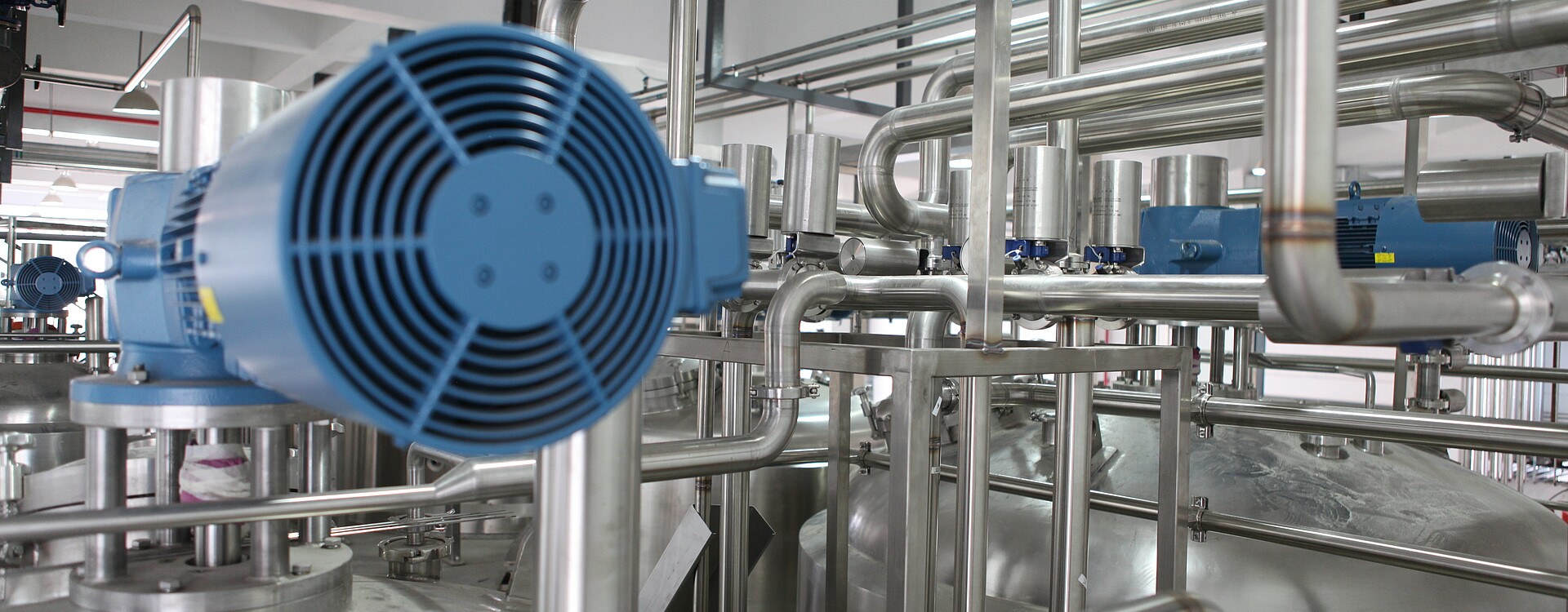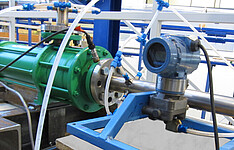Energy efficient pump systems
Not only the legal requirements such as the EU directive ErP (Energy-related Products) for the reduction of greenhouse gases, but even more the savings in energy costs and the resulting competitiveness are powerful arguments for energy-efficient pump systems. Energy costs can account for up to 85 percent of life cycle costs.
The basic criteria for energy-efficient pump systems are firstly the determination of the pump's efficiency taking into account the load profile. Secondly, a design that is as close as possible to the best efficiency point and thirdly, a demand-oriented operating mode in the system by adapting the flow rate.
Conflict of interest
The most energy-efficient approach is the precise design of the pump, taking into account the load profile and the hydraulically optimized system layout. Due to historically grown plants and fear of pump or process standstill, many pumps are severely oversized. There is a conflict of interest between production reliability and energy savings.
Optimisation potentials
The most energy-efficient approach is the precise design of the pump, taking into account the load profile and the hydraulically optimized system layout. Due to historically grown plants and fear of pump or process standstill, many pumps are severely oversized. There is a conflict of interest between production reliability and energy savings.
Rotational speed regulation
In the meantime, rotational speed control by means of frequency converters has established itself as reliable and cost-effective. In addition to the reduced starting currents, the main advantage is that the rotational speed can be designed flexibly and, instead of a pump curve, a complete pump characteristic diagram, i.e. the ratio of flow rate to delivery head as a function of the speed, can be traversed. If the operating points of the system are completely outside the operating range, in most cases the existing impeller has to be replaced. Adapting the flow rate by means of rotational speed control offers further advantages. This avoids excess pressure, supposed safety margins and tolerances. The pumps can be started "more gently" and mechanical parts can be protected, which leads to less wear. The reduced starting currents lead to a lower network load. Hydraulic feedback is also reduced. As a result, speed-controlled pump systems have lower life cycle costs.

Comprehensive approach
Energy-efficient control of the flow rate with a frequency inverter is much more precise and faster and enables indirect interaction between the pump and the system status. For example, a control unit can automatically set the rotational speed for certain process parameters so that the pump adapts intelligently to the process. This not only saves energy and the associated costs, but also enables the operation of the entire plant in the respective operating optimum of all sub-components and leads to considerable improvements in plant efficiency. With a pump system that covers the actual demand for pumping media, up to 60 percent of energy costs can be saved. In this way, large consumers of electrical energy can effectively avoid peak loads, operate the plant efficiently and link production to fluctuating electricity prices in order to generate further cost advantages.
Practical implementation
As independent experts, we provide significant support to manufacturers in the further development of highly efficient pump units. Plant operators also benefit from independent measurement and testing as well as an analytical inventory in order to obtain economically sensible recommendations, to comply with legal requirements or to carry out state-of-the-art modernisation to strengthen competitiveness. Efficient aggregates and plants save money, strengthen competitiveness and protect the environment.
You might also be interested in this:
Research on Process Pumps
Optimisation of side channel pumps
Canned Motor Pumps
Simulation and optimisation
Stay up to date
Subscribe to our newsletter and stay up to date on our activities, continuing education and conferences.
We are your independent expert for:
- On-site measurements according to IEC 60041 and IEC 62006
- Acceptance tests and model tests according to IEC 60193, ISO 9906, IEC 60534, IEC 62006
- Plant, operation and life cycle tests
- Endurance test
- Comparison of experimental data with numerical simulation (3D-CFD)
- Analysis, design and optimisation of hydraulic machines, components and complete systems
- Water hammer and pressure surge as well as transient conditions of fluid and gas flows
- Fluid-structure interaction
We look forward to your enquiry!
Our experts for your fluid technology issues for pumps and systems:

Helmut Jaberg
O.Univ.-Prof. em. Dipl.-Ing. Dr.techn.
CEO (Managing Partner)






